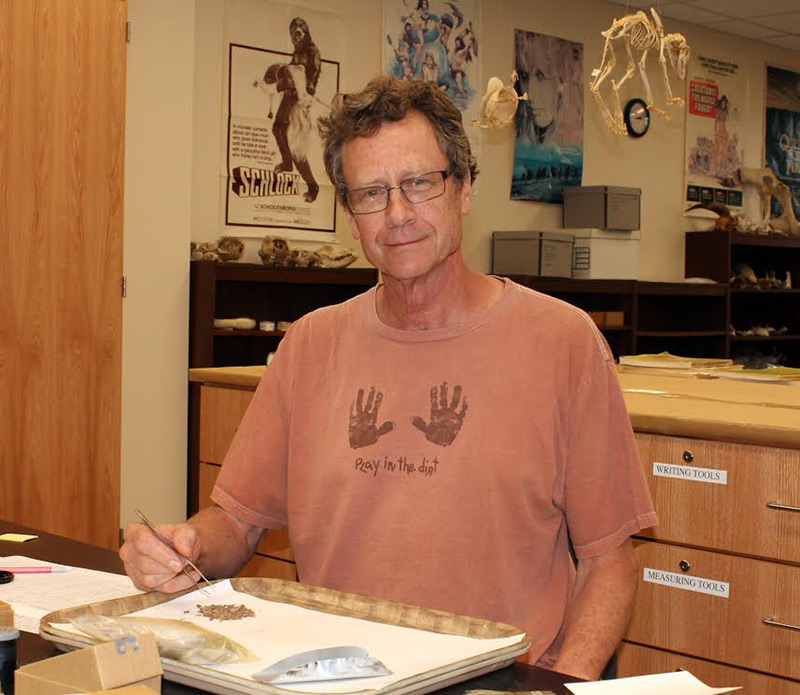Professor Thomas Whyte was less than a year away from graduating with an art degree from James Madison University when he took a field archaeology class the summer before graduation.
“I wasn’t in the dirt for two days before I realized that I wanted to be an archaeologist instead of an artist,” he said.
Whyte likes to tell that story each time his own field archaeology class meets for the first time because the course’s required field experience will “make or break” a student, he said. Most students become hooked on the thrill of discovery.
Whyte loves archaeology for that same reason, he said. It’s “the thrill of solving puzzles about the human past from the clues those humans have left behind.”
Whyte’s areas of research include archeology and zooarchaeology. He teaches the field archaeology class as well as classes on prehistory of the southern Appalachians and Stone Age stereotypes, to name a few.
“Eighty percent of what I teach is based in my own research.” Whyte said. “It is the only material that I truly know better than anyone else and it provides my lectures with case studies of the necessary questions, theory, methods and techniques.
When he’s teaching, Whyte loves to show students his passion for the field and underscore that they can find a career doing something they enjoy too.
“Archaeology, like history but even more so, provides us with a broad understanding of the diversity of human culture and biology across time and space,” Whyte said. “My personal experience of practicing archaeology has not only provided me with this understanding, but also a deep appreciation for human diversity in the present. That being said, however, what leads any of us into the practice of archaeology is simply an insatiable curiosity about the human past and how humans have become what they are today.“
Dr. Thomas Whyte’s areas of research include archeology and zooarchaeology.

